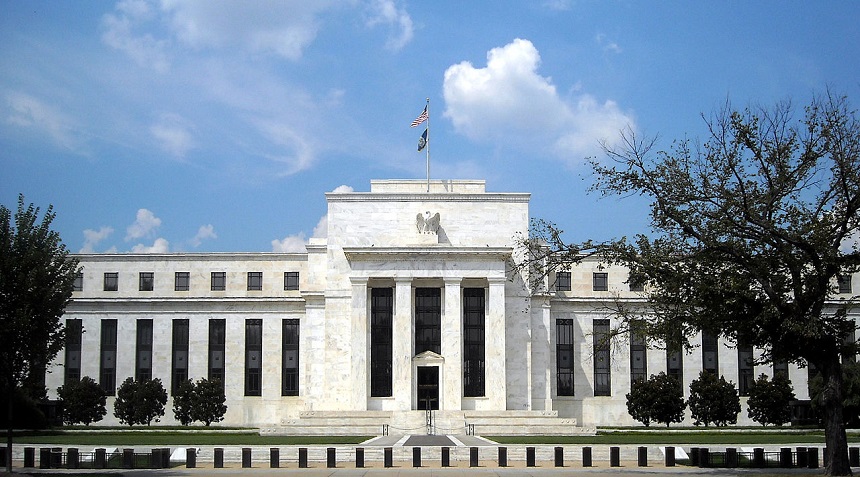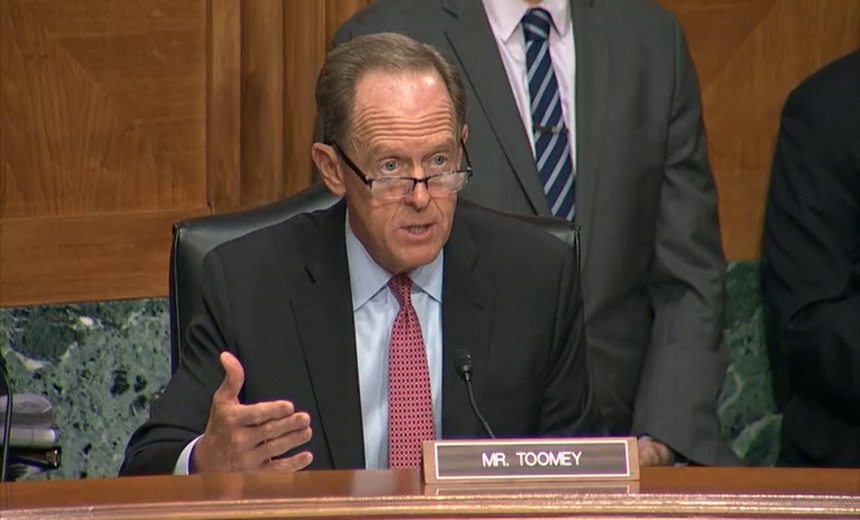Financial Agencies Eye Existing Laws for Crypto Regulation
Three U.S. financial agencies have conducted a series of “policy sprints” around cryptocurrency assets and related regulatory gaps for banks, and plan to amend existing guidance and regulations to address security and market risks, the Board of Governors for the Federal Reserve System said on Tuesday.
In a joint statement on cryptoasset policy, the Fed’s Board of Governors, the Federal Deposit Insurance Corporation and the Office of the Comptroller of the Currency again acknowledged that “the emerging cryptoasset sector presents potential opportunities and risks for banking organizations, their customers and the overall financial system.”
The agencies said that as more financial institutions “engage in cryptoasset-related activities,” it is important for them to “promote safety and soundness, consumer protection, and compliance with applicable laws and regulations” – particularly around anti-money laundering and illicit finance.
The agencies reviewed the “legal permissibility” of cryptoasset activities conducted by banks, and the applicability of existing regulations and guidance – or areas in need of clarification. In particular, they analyzed:
- Cryptoasset custody;
- Facilitation of customer purchases and sales of cryptoassets;
- Loans collateralized by cryptoassets;
- Stablecoin payments – which are cryptocurrencies pegged to fiat currency;
- And the practice of holding cryptoassets.
“Based on this preliminary and foundational staff-level work, the agencies have identified a number of areas where additional public clarity is warranted,” they wrote on Tuesday.
A resulting “roadmap” for 2022 focuses on applying existing laws and regulations to the aforementioned categories, and others as the market evolves. The agencies also plan to consult with the Basel Committee on Banking Supervision, a global committee of banking supervisory authorities.
Describing the joint statement as being in “lock-step” with an increased regulatory focus, Michael Fasanello, who has served in various roles within the U.S. Justice and Treasury departments, including for Treasury’s Financial Crimes Enforcement Network, or FinCEN, tells ISMG: “Regulations should address, and institutions should expect to adapt to, for example, the real-time and largely immutable nature of crypto transactions versus fiat settlements that often take several days.”
Fasanello, who is currently the director of training and regulatory affairs for the firm Blockchain Intelligence Group, adds, “Compliance programs will need to … switch to a hybrid of AI, automated analytics, and human intervention at the higher levels of risk mitigation.” Federal Reserve Building in Washington, D.C. (Photo: AgnosticPreachersKid via Wiki/CC)
Federal Reserve Building in Washington, D.C. (Photo: AgnosticPreachersKid via Wiki/CC)
Stablecoin Oversight
Earlier this month, the President’s Working Group on Financial Markets, the FDIC and the OCC released a report that urges Congress to “act promptly” to issue legislation that brings additional oversight to stablecoins (see: US Treasury Department Says Stablecoins Must Be Regulated).
The working group – comprised of federal financial leaders from the Securities and Exchange Commission, the Federal Reserve and the Commodity Futures Trading Commission – suggested that stablecoin issuers should be held to standards similar to those for insured depository institutions. It also credited the SEC and CFTC with “broad enforcement, rulemaking, and oversight authorities.”
Ari Redbord, head of legal and government affairs for the blockchain intelligence firm TRM Labs, told Information Security Media Group at the time that the legislation desired by Treasury leaders “would subject stablecoins to strict supervision by regulators who are especially concerned about the systemic or ‘prudential’ risks, such as a run on stablecoins.”
As federal regulators continue to analyze cryptoassets, and in particular its effects on the traditional U.S. banking system, SEC Chair Gary Gensler remains outspoken about the need to rein in the emerging asset class. In August, he said crypto markets are “rife with fraud, scams and abuse,” and called on lawmakers to provide the independent agency with additional authority to regulate related markets (see: PayPal to Hire Dozens of Cryptocurrency Security Experts).
CBDC Activity
The Federal Reserve is also currently analyzing a digital dollar – or central bank digital currency, known as a CBDC. In September, Chair Jerome Powell said, “We live in a time of transformational innovation around digital payments, and we need to make sure that the Fed is able to continue to deliver to the public a stable and trustworthy currency and payment system” (see: Fed Chair Says Central Bank Evaluating Digital Currency).
According to international affairs think tank the Atlantic Council, 87 countries – representing over 90% of global GDP – are now exploring a CBDC.
The concept has previously earned praise from Lael Brainard, a member of the Federal Reserve Board of Governors, while Fed Vice Chair for Supervision Randal Quarles has not been as receptive.
Quarles has expressed concern over whether government-backed digital currencies will in fact improve financial inclusion or lower banking costs since the U.S. dollar has already been “highly digitized.”
President Joe Biden on Monday confirmed that he will be nominating Powell for a second, four-year term as Fed chair. File image of Sen. Pat Toomey, R-Pa., during a September 2021 Senate hearing
File image of Sen. Pat Toomey, R-Pa., during a September 2021 Senate hearing
Lawmakers Weigh In
On Tuesday, Sen. Pat Toomey, R-Pa., told Bloomberg that the U.S. should adopt a CBDC, in part as a way to fuel financial innovation.
“Our native currency, the currency for the U.S., should have the most sophisticated capabilities of any currency in the world, and that probably means we ought to adopt a digital dollar,” said Toomey. “But how you do that is extremely important.
“For instance, it’d be a terrible idea to have retail bank accounts with the Federal Reserve, and to turn the Fed into everybody’s retail bank, as some of my colleagues would like. The Fed is utterly unequipped for that, and the implications for the privacy of the American people would be terrible.”
He added: “But the idea of having a tokenized dollar that is capable of being exchanged on a peer-to-peer basis on a platform where developers can innovate and develop new products and services, I think there’s a strong case for that.”
Toomey is one of several bipartisan lawmakers who supported an amendment to the recently passed infrastructure bill that would have eased new obligations on developers, miners and others in the cryptocurrency space. This month, the bill passed unchanged.
However, another group of lawmakers introduced legislation last week to change tax reporting requirements brought about by the physical infrastructure bill.
The Keep Innovation in America Act was introduced by Reps. Patrick McHenry, R-N.C., and Tim Ryan, D-Ohio, and would amend the definition of “broker,” as well as delay certain reporting requirements to the IRS until 2026 – including on transactions exceeding $10,000.
Ready to Start Investigating?
Our intuitive solutions bring you closer to your goals on the first day.



